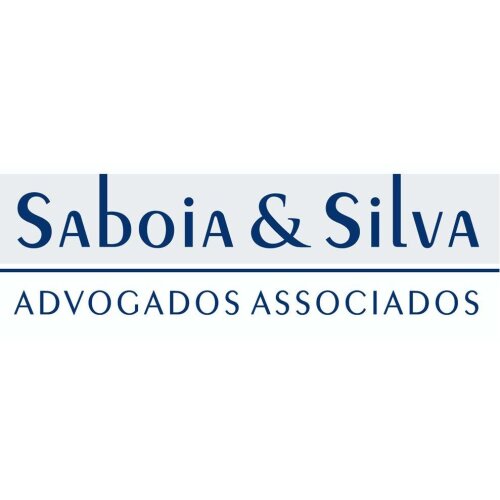Best International Trade Law Lawyers in Rio de Janeiro
Share your needs with us, get contacted by law firms.
Free. Takes 2 min.
List of the best lawyers in Rio de Janeiro, Brazil
About International Trade Law in Rio de Janeiro, Brazil
International Trade Law in Rio de Janeiro, Brazil, encompasses the rules and regulations governing trade between Brazil and other countries. It involves both Brazilian domestic laws and international treaties and agreements to which Brazil is a party. Given Rio de Janeiro's role as a major port city, the city's economy is deeply influenced by international trade activities. Therefore, understanding International Trade Law is crucial for businesses and individuals engaged in import and export activities, as well as foreign companies operating in Brazil.
Why You May Need a Lawyer
Individuals and businesses may require legal assistance in the field of International Trade Law for various reasons, including:
- Dealing with customs regulations and compliance issues when importing or exporting goods.
- Navigating international trade agreements and tariffs that impact their business operations.
- Resolving trade disputes, such as breaches of contract or intellectual property issues involving international parties.
- Ensuring adherence to Brazilian trade policies, which may differ significantly from those of other countries.
- Understanding the implications of international sanctions or embargoes.
- Structuring cross-border transactions to ensure compliance with both Brazilian and international legal requirements.
- Pursuing trade remedies or defending against anti-dumping investigations.
Local Laws Overview
Brazilian International Trade Law is governed by a mix of domestic legislation and international agreements, including:
- The General Agreement on Tariffs and Trade (GATT) and World Trade Organization (WTO) agreements, which Brazil is a signatory to, and form the basis of Brazilian trade policy.
- The Brazilian Customs Regulation, which sets out the guidelines for the import and export of goods.
- Brazil's Foreign Trade Policy, enacted by the Ministry of Economy, which outlines tariffs, non-tariff barriers, and trade defense measures.
- Special local programs such as the "REPETRO" which provides tax incentives for the oil and gas sector.
- Various bilateral and multilateral trade agreements that Brazil is part of, affecting trade relations with other countries.
Frequently Asked Questions
What is the primary legal framework for International Trade in Brazil?
The primary legal framework includes the Brazilian Constitution, international treaties ratified by Brazil, laws enacted by the National Congress, and regulations issued by government agencies like the Brazilian External Trade Secretariat (SECEX).
How can I ensure compliance with Brazilian import regulations?
Compliance requires understanding applicable tariffs, customs procedures, and import licensing requirements. Consulting with a legal expert who specializes in Brazilian trade law can be crucial.
Do foreign businesses face specific legal challenges when trading with Brazil?
Yes, foreign businesses may face challenges such as navigating complex bureaucracy, understanding language barriers, and adapting to differing business practices and legal expectations.
What are common types of trade disputes in Brazil?
Common disputes include those related to contracts for the sale of goods, breaches of trade agreements, intellectual property rights infringement, and customs violations.
Does Brazil have free trade agreements with other countries?
Yes, Brazil has entered into several free trade agreements, primarily through the Southern Common Market (MERCOSUR) and individually with countries like Mexico and Israel.
What is the role of the Brazilian Customs Authority?
The Brazilian Customs Authority, a branch of the Federal Revenue Service of Brazil, is responsible for overseeing the import and export of goods and ensuring compliance with customs regulations.
What are some trade remedies available in Brazil?
Trade remedies may include anti-dumping measures, countervailing duties, and safeguards to protect domestic industries from unfair foreign competition.
Is it necessary to obtain a license for exporting goods from Brazil?
Most goods do require export licensing, which can vary depending on the type of goods and destination. The Integrated Foreign Trade System (SISCOMEX) is used for processing such licenses.
How does Brazil handle intellectual property rights in international trade?
Brazil has laws in place to protect intellectual property rights, and it is also a member of the World Intellectual Property Organization (WIPO). These laws are enforced to prevent counterfeiting and unauthorized use.
What are the procedures for resolving international trade disputes in Brazil?
Dispute resolution can include negotiation, mediation, arbitration, and litigation, often facilitated by legal professionals familiar with both Brazilian and international commercial practices.
Additional Resources
For further assistance and information regarding International Trade Law in Rio de Janeiro, consider consulting the following resources:
- The Brazilian Ministry of Economy, which manages trade policy and commerce regulations.
- AGU (Advocacia-Geral da União) for legal guidance on matters involving federal interests.
- Local trade associations like the Federation of Industries of the State of Rio de Janeiro (FIRJAN) for industry-specific advice.
- The Brazilian Bar Association (OAB) to find qualified international trade lawyers.
- Trade-related publications by the Brazilian Trade and Investment Promotion Agency (Apex-Brasil).
Next Steps
If you need legal assistance in International Trade Law, consider the following steps:
- Consult with a specialized lawyer to gain a comprehensive understanding of your legal needs and obligations.
- Review your business activities to ensure compliance with current trade laws and regulations.
- Gather all relevant documentation and evidence related to your trade activities to facilitate legal assessment.
- Stay informed about changes in both Brazilian and international trade laws that may affect your operations.
- Consider joining professional associations or attending seminars to expand your knowledge about international trade.
Taking these steps can help ensure you're well-prepared to navigate the complexities of International Trade Law in Rio de Janeiro, Brazil.
Lawzana helps you find the best lawyers and law firms in Rio de Janeiro through a curated and pre-screened list of qualified legal professionals. Our platform offers rankings and detailed profiles of attorneys and law firms, allowing you to compare based on practice areas, including International Trade Law, experience, and client feedback.
Each profile includes a description of the firm's areas of practice, client reviews, team members and partners, year of establishment, spoken languages, office locations, contact information, social media presence, and any published articles or resources. Most firms on our platform speak English and are experienced in both local and international legal matters.
Get a quote from top-rated law firms in Rio de Janeiro, Brazil — quickly, securely, and without unnecessary hassle.
Disclaimer:
The information provided on this page is for general informational purposes only and does not constitute legal advice. While we strive to ensure the accuracy and relevance of the content, legal information may change over time, and interpretations of the law can vary. You should always consult with a qualified legal professional for advice specific to your situation.
We disclaim all liability for actions taken or not taken based on the content of this page. If you believe any information is incorrect or outdated, please contact us, and we will review and update it where appropriate.














